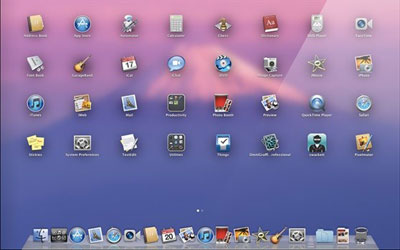Your Operating System Is Now an App
The app-ification of computing - fad or for realz?
The app-ification of computing - fad or for realz?
As a guy who writes a regular column on apps, trust me when I tell you there’s no shortage of ideas. And while I appreciate fodder for the articles and for my job at one of the largest interactive agencies, sometimes I wonder if this app business has gone too far. Within the last couple of months, apps have taken a giant leap towards domination of digital platforms. Sound like hype? Read on.
Apps are a true and proven commodity on two platforms: the smartphone and the tablet. With iOS and Android leading the charge, WebOS lagging in a very distant third, and poor old RIM huffing and puffing at the starting line (with the ironically named “Super Apps”), consumers love themselves their apps. Of course it’s big business for software developers. For marketers, it’s another great moment to let consumers show affinity for a brand and to influence the Zero Moment of Truth.
Once you get past the smartphone and tablet, however, apps are more of an idea than a part of our lives. It’s true that TVs, refrigerators, home security systems, console game boxes, and many other platforms are starting to handle apps, but it’s not clear that consumers want them all. Even the web has gotten into the game with Chrome apps, and in January, Apple launched the Mac App Store (which, confusingly, runs different apps than iPhones and iPads do). But now, Apple and Microsoft have taken the world of apps directly to the operating system – and if it catches on, it will change the way consumers interact with their computers.
Apple’s entry into the fray is Lion, its new version of the big cat-themed OSes and the successor to 2009’s Snow Leopard. Available now, this operating system is particularly notable because you can only get it through the above-mentioned Mac App Store. Yep, the company that dared to get rid of floppies has taken aim at the CD as its next victim.
For Microsoft, Windows 8 (due out next year) is the next act in the checkered recent past (even a great and very solid Windows 7 has had a tough time erasing the bitter taste of Vista) for the makers of the world’s most popular operating system. While timelines often slip, Microsoft has been very public about a 2012 launch, with speculations of a beta launch at CES.

Both systems draw on what the respective companies have done on their mobile platform. Microsoft has won a fair number of converts with the user experience of “Phone 7,” its current mobile operating system, which uses a simple, tile-based system to put the information you need in front of you. The system works well, and, while it has a big mountain to climb to get to Android and iPhone territory, it’s a viable option. Windows 8, not surprisingly, builds on many of the best features of Phone 7.

Apple is using the runaway success of the iPhone and iPad metaphors and is taking it to the desktop. What the Cupertino crew has made standard for smartphones – all of your apps or collections of apps on the start-up screen – is now available on all Apple products through Lion’s “Launchpad” feature.

Lion has also made a big deal about “full screen apps.”

You really have to look at full screen apps in the context of a monitor because otherwise you can’t get the sense of it. As you see above, everything else disappears – the dock, the “Apple” bar on the top, all gone – so we can focus on the task at hand. Is this a response to our societal ADD? Are we so peripatetic that we can’t work on one thing unless everything else is covered up? Probably.
One thing that is going to be universally appreciated is Auto Save, a great idea that probably doesn’t need any explanation. But here’s one anyway: it means no more Save button. Ever. Your software just saves as you go.
So: great features, but what does it all mean? Over-correction? Another episode of “if thin is good, thinner must be better” (the thinking that halted the progress of the Motorola Razr)?
From everything I’ve seen, this goes way beyond just hype. Here are the reasons that this nearly simultaneous change from the two OS heavyweights makes a big difference:
It appears that this change is here to stay and should make our digital lives better. Unless, of course, the apps become sentient and rise up against us. If that happens, God help us; we’ll be doing all of these tasks for them in no time.